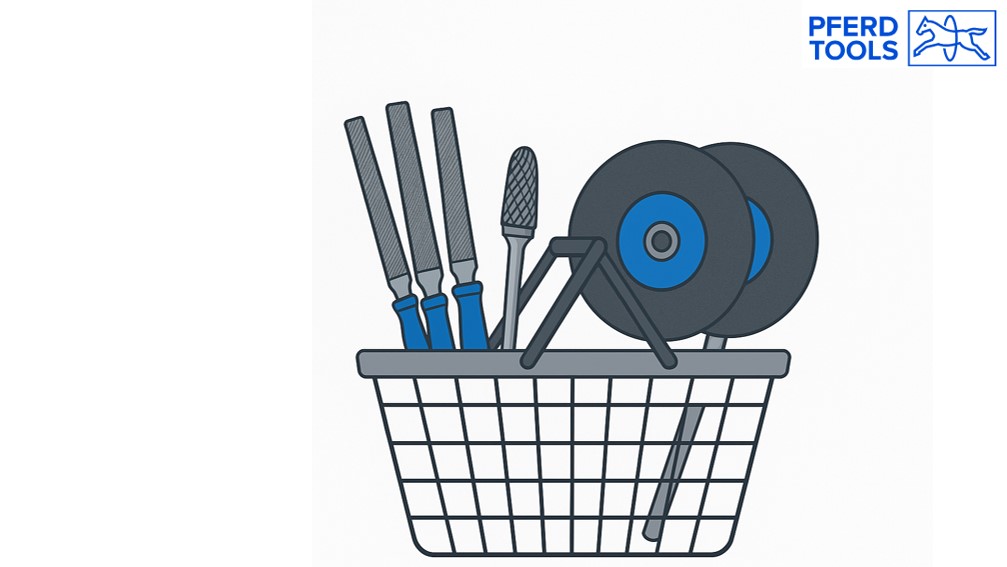Guided Project WS25_12 »Industrial Market Basket Analysis«
Organizational Details
- Supervisor(s)
- Lukas Bader
- Team size
- 3-4
- Language
- English
- Start
- Beg. October
- Offered as
- GP-GAK (12 ECTS)

August Rüggeberg is a leading company in the development, manufacturing, and distribution of tool solutions for surface treatment and material separation. The product range includes approximately 9,000 products. A key component of its global strategic orientation is the optimization of the product offering and the identification of cross-selling potential. The current method of identifying purchasing patterns is often time-consuming and based on experience, which can lead to non-transparent or incomplete insights.
In the context of data-driven business development, the analysis of purchasing behavior (market baskets) is a promising approach to gain deeper insights into the buying patterns of industrial customers. In particular, the examination of industry-specific purchasing patterns that is, specific product combinations that are frequently purchased together can help uncover hidden relationships and potentials within the product portfolio.
The goal of this project is to conduct a comprehensive market basket analysis for industrial customers of August Rüggeberg GmbH & Co. KG, primarily in the German but also in the European market. The focus is on identifying industry-specific purchasing patterns, i.e., tool combinations that are typically bought together.
The analysis will be based on real product data, with end customers and industries anonymized. The data contains the actual products within various market baskets, but not the sales volume or revenue, so the focus lies on What is purchased together?. The analysis criteria include:
Identification of product associations: Which products are frequently found together in a market basket?
Pattern recognition in purchasing behavior: Deriving rules (e.g., “If product A is purchased, product B is often purchased as well”).
Industry-specific differences: Investigating whether purchasing patterns differ across industries within Germany and Europe.
Potential analysis: Deriving recommendations for product bundling, cross-selling strategies, and inventory management.
How to independently execute a data analytics project in the context of an industrial problem.
Data analytics skills: Preprocessing and analysis of transaction data for market basket analysis.
Python programming: Using Python as a programming language to implement association analysis algorithms (e.g., Apriori algorithm) and visualize the results.
Problem-solving competence: Analyzing and solving complex problems related to identifying purchasing patterns and deriving business recommendations.
Economic relevance: Understanding how data analytics methods can be applied to optimize sales and marketing strategies in a B2B environment.
Strong willingness to work in a self-organized manner.
Programming knowledge in Python (especially libraries such as Pandas, NumPy, SciPy, Matplotlib/Seaborn).
Basic knowledge of statistics (particularly correlations and association rules).
Basic business knowledge (especially in sales and marketing).
August Rüggeberg GmbH & Co. KG, Marienheide